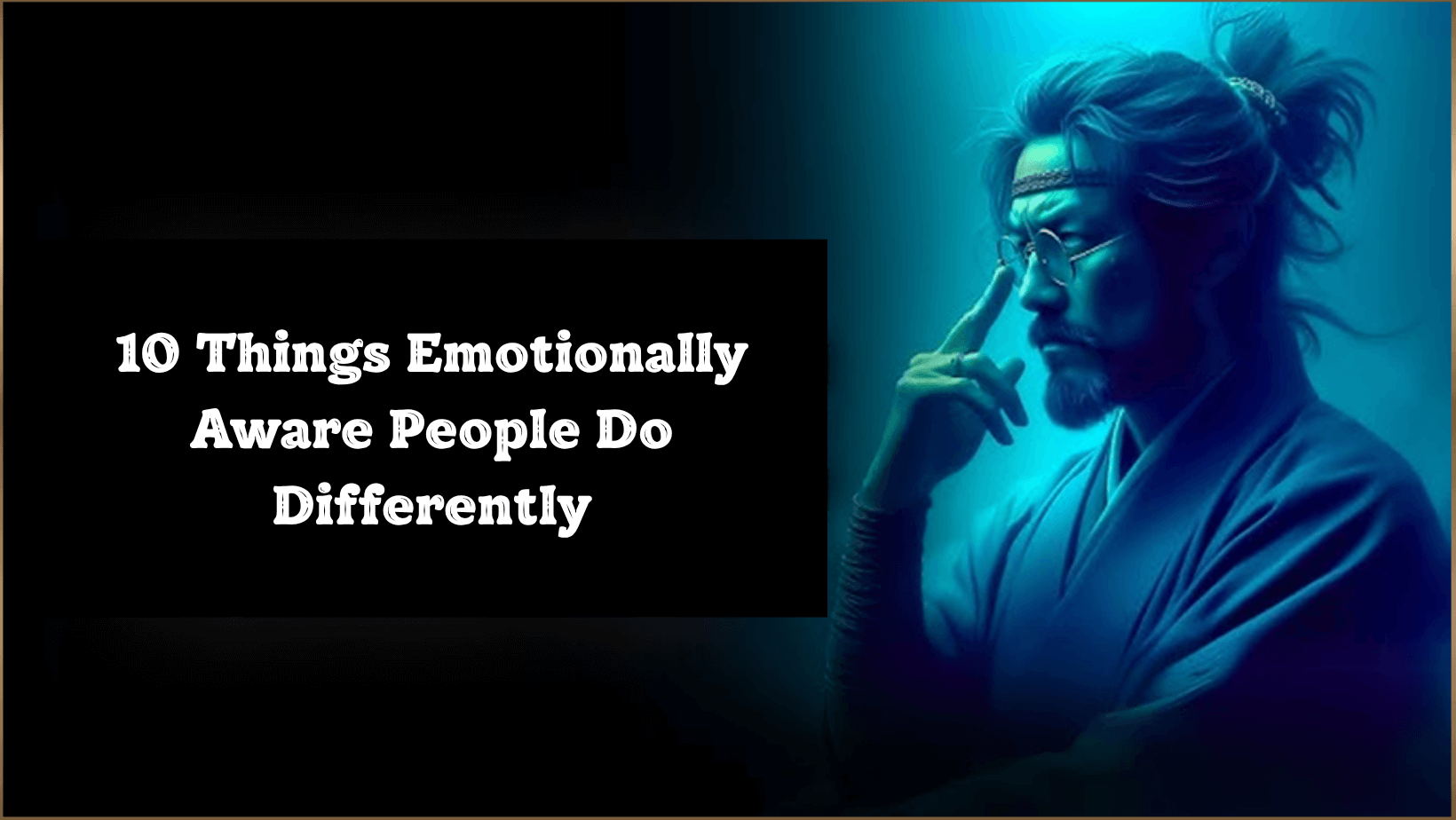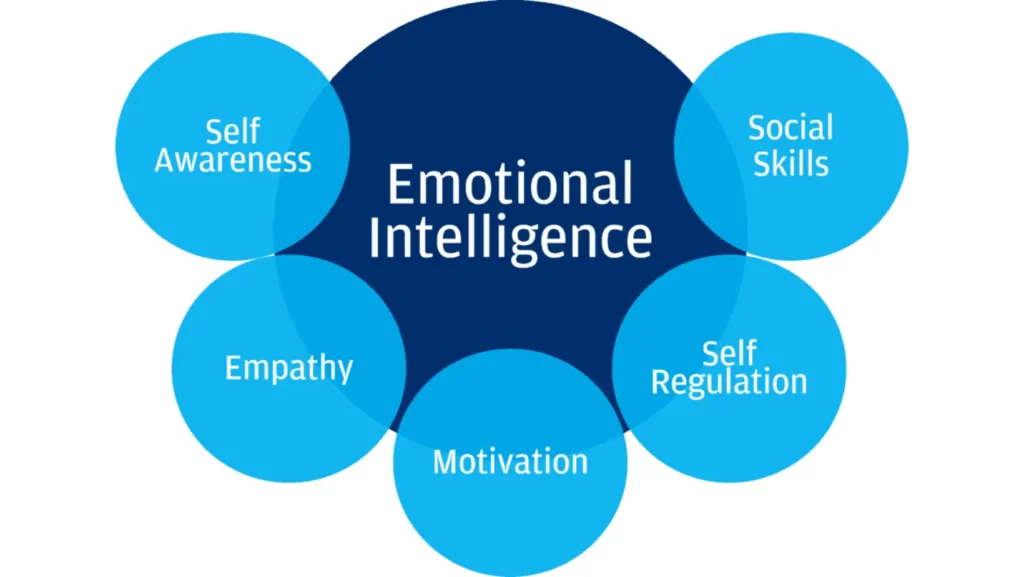
Introduction:
Do you think emotions are important? Some people walk into a space and immediately shift the energy in the room. They are not loud. They are not demanding. Also, they simply know?
They know their emotions. More importantly, they know how emotions impact every aspect of life. Every decision you make, every text response you generate, and every act of compassion toward another human being—your emotions lead you. Hence, in psychology, this is referred to as emotional intelligence. In Islam, it refers to Tazkiyah, or purification of the soul.
Allah says, “He has succeeded who purifies it” (Qur’an 91:9).
Read more: 7 Psychological Laws Ruling Your Mind

They Pause Before Acting
When they feel themselves triggered, they hit pause. They take a deep breath. They notice the feeling before they respond. This brief pause often saves them from feeling regret. In the field of psychology, this skill is referred to as “response inhibition,” the ability to pause before the impulse of an emotion takes hold. Emotionally aware people restrain themselves before building a response, and Islam supports this skill.
The Prophet Muhammad ﷺ said, “The strong man is not the one who overcomes the people by his strength, but the strong man is the one who controls himself when angry” (Bukhari). The capacity to react is instinctual; the ability to respond is spiritual strength.
They Label their Emotions Clearly
When they label their emotions, they are bringing clarity to confused feelings. In psychology, this is referred to as “affect labeling”–in other words, affect labeling calms the emotionally active parts of the brain. The Qur’an recommends reflecting inwardly: “And in yourselves will you not reflect?” (Qur’an 51:21). When you label your emotions, you take the first step to understanding your emotions. You cannot heal what you do not even have a clear label for.
They Don’t Shame Themselves for Feeling
They don’t say, “I shouldn’t feel this way.” Only, they merely allow whatever presents itself to present itself. Also, they understand each emotion has an underlying message to communicate. Jung once said, “What you resist, persists,” which emphasizes this contemplation-based philosophy of feeling. I think Islam somewhat supports the idea of thinking about our emotions to some degree. For example, Prophet Yaqub (AS) mourned the loss of his son for years, yet was still described as being makfureen (patient) by Allah.
They Can Feel What Others Are Feeling
People keenly aware of their emotional landscape are often incredibly empathetic. They can “feel” what another feels even when that other person has not said anything. They are picking up that person’s energy, tone, and feelings that the other person is not consciously (or unconsciously) expressing.
Psychologists refer to this ability as “empathic accuracy. “This empathic accuracy is a sign of emotional maturity. Islam places a high value on empathy. The Prophet ﷺ said, “None of you truly believes until he loves for his brother what he loves for himself” (Bukhari).
They Keep Their Composure in Conflict
They don’t jump to defend themselves or blame the other person instead. Also, they listen carefully and gently speak. They focus on resolution, not winning. In psychology, we call this “self-regulation.” The Qur’an calls upon those who manage their emotions—and anger: “Those who restrain anger and forgive others—Allah loves them” (Quran 3:134). Self-aware people also understand that anger can knock on the door of your heart—but does not have to own your soul.

They Reflect on Their Feelings Each Day
At the end of each day, people who are aware of their emotions look back. They reflect. They ask themselves questions like, “What did I feel today? What was that triggered by? What do I need to learn?” This daily self-check-in leads to emotional growth. In psychology, we call this a form of journaling.
In Islam, it’s called muhasabah, or self-accountability. The Companion Umar ibn Al-Khattab (RA) would remind us to “take account of yourselves before you are taken account of.” Healing begins the moment you make reflection an intentional practice.
They Don’t Let Emotions Make the Decisions
They make room for both emotion and rational thinking. Emotionally intelligent people are aware that emotions matter but aren’t facts. They have a command for both heart and reason. Islam teaches this, too! The Qur’an asks, “Will you not use your reason?” repeatedly.
They Study Their Emotional Triggers
Emotionally intelligent people know what pushes their buttons. Rather than blaming others, they reconsider and ask, “Why did I react the way I did in that situation?”In many cases, these triggers come from deeper feelings. The Qur’an adds a level of awakening to this concept: “Allah will not change a people until they change what is within themselves” (Qur’an 13:11).
They Don’t Blame—They Heal
Emotionally aware people take ownership of how they feel. They don’t say, “You made me feel worthless.” They may say instead, “That interaction activated something painful inside of me.” This shift is impactful. This is taking blame and transforming it into healing. This is called “emotional responsibility.” Islam encourages this deep work. The more one is directed inward, the less they rely upon others to heal them. Healing can take place when we take accountability and stop pointing at someone else’s fault, and we reflect on our own heart.
They Make Other People Feel Emotionally Safe
Finally, emotionally aware people leave others feeling heard. They don’t judge or shame. They validate the emotions. Also, they listen to the words—with their heart. This is emotional safety. In Islam, the example of the Prophet ﷺ demonstrates this perfectly. People shared their hearts with him because they felt safe. He never belittled someone’s emotions. He helped them feel better by saying comforting things to them or offering knowledge. Emotionally aware people are following the Sunnah of not only looking like him but acting like him in terms of their emotional character.
Final Thoughts: Emotional Awareness as a Spiritual Superpower
Emotional awareness is more than just a mental discipline; it is a spiritual gift. Academia in the psychological realm teaches us to monitor and manage our feelings. Islam teaches us to purify our hearts based on our awareness.
The Qur’an tells us, “Indeed in the remembrance of Allah do hearts find rest” (Quran 13:28).




Leave a Reply